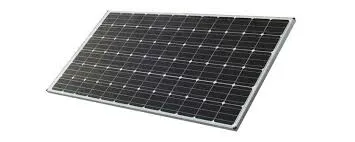Innovative Solar-Powered Air Conditioning Solutions for Sustainable Cooling Systems
Solar Air Conditioning Systems A Sustainable Solution for Cooling
As the planet grapples with rising temperatures and increasing energy demands, innovative solutions are essential for creating a sustainable future. Solar air conditioning systems emerge as a promising answer to the dual challenges of climate control and renewable energy. By harnessing the Sun’s abundant energy, these systems provide an eco-friendly and cost-effective means of cooling spaces, significantly reducing our reliance on fossil fuels and conventional electricity.
What is a Solar Air Conditioning System?
A solar air conditioning system uses solar energy to provide cooling, either by employing solar thermal systems or photovoltaic (PV) panels. Solar thermal systems use sunlight to heat a fluid, which then drives an absorption chiller to produce cool air. On the other hand, PV panels convert sunlight directly into electricity that powers traditional air conditioning units. Both methods leverage the immense energy potential of the Sun, making them sustainable alternatives to conventional cooling systems.
Benefits of Solar Air Conditioning
1. Environmental Impact One of the primary advantages of solar air conditioning is its reduced carbon footprint. Traditional air conditioning systems consume large amounts of electricity, often generated from fossil fuels, leading to greenhouse gas emissions. In contrast, solar air conditioning systems operate on clean, renewable energy, significantly lowering overall emissions.
2. Cost Savings Although the initial investment in solar air conditioning systems can be higher than conventional systems, the long-term savings on energy bills can be substantial. By utilizing free solar energy, users can drastically reduce their electricity costs. Additionally, many governments offer incentives, tax credits, and rebates for solar installations, helping offset initial expenses.
3. Energy Independence Solar air conditioning contributes to energy independence by reducing reliance on grid electricity. In areas where electricity supply is unreliable or expensive, solar-powered cooling systems can provide a consistent and self-sufficient source of energy. This independence is particularly beneficial in remote or off-grid locations.
4. Adaptability and Versatility Solar air conditioning systems can be customized to suit various applications, from residential homes to large commercial buildings. Depending on climate conditions and energy requirements, systems can be designed for maximum efficiency in any environment. This versatility makes solar air conditioning a viable option for a diverse range of users.
solar air conditioning system

5. Low Maintenance Costs Once installed, solar air conditioning systems generally require less maintenance compared to traditional units. With fewer mechanical components involved, the likelihood of breakdowns is reduced, and ongoing maintenance costs are lower.
Challenges and Considerations
While solar air conditioning systems offer many benefits, there are challenges to consider. The upfront cost of purchasing and installing solar panels or thermal systems can be a barrier for some consumers. However, financing options and incentives are available in many regions to help overcome this hurdle.
Another consideration is the variability of solar energy. Solar air conditioning systems rely on sunlight, which can be unpredictable due to weather conditions or seasonal changes. To mitigate this issue, many systems are designed with energy storage capabilities or hybrid models that can switch to grid power when necessary, ensuring reliable cooling even on cloudy days.
The Future of Solar Air Conditioning
The future of solar air conditioning systems looks promising as advancements in technology and increasing public awareness of climate change drive demand for sustainable solutions. Innovations such as improved solar panel efficiency, integrated energy storage systems, and smart technology for monitoring and managing energy use will continue to enhance the effectiveness of solar air conditioning.
Governments and organizations are also recognizing the importance of investing in renewable energy solutions, and as policies become more supportive, the adoption of solar air conditioning is likely to increase. With a focus on sustainability and energy efficiency, embracing solar air conditioning systems can play a vital role in mitigating climate change and building a greener future.
In conclusion, solar air conditioning systems represent a smart and necessary evolution in cooling technology. By utilizing the Sun’s energy, these systems not only provide effective temperature control but also foster environmental stewardship and cost savings. As we move towards a more sustainable future, embracing innovative solutions like solar air conditioning is essential for both individual households and our planet as a whole.
-
Unlocking Energy Freedom with the Off Grid Solar InverterNewsJun.06,2025
-
Unlock More Solar Power with a High-Efficiency Bifacial Solar PanelNewsJun.06,2025
-
Power Your Future with High-Efficiency Monocrystalline Solar PanelsNewsJun.06,2025
-
Next-Gen Solar Power Starts with Micro Solar InvertersNewsJun.06,2025
-
Harnessing Peak Efficiency with the On Grid Solar InverterNewsJun.06,2025
-
Discover Unmatched Efficiency with the Latest String Solar InverterNewsJun.06,2025







